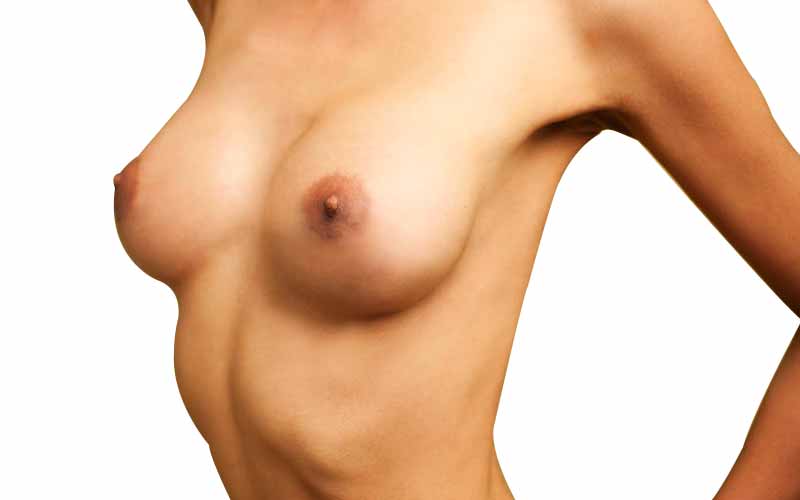MASTOPEXY BREAST LIFT


THE GOAL: To restore a youthful, natural contour to breasts that have lost their shape due to aging, pregnancy, nursing or changes in weight.
Terminology Notes for Breast Lift
A breast lift can also reposition and/or reduce the size of the areola, the darker skin surrounding the nipple.
Mastopexy is the term for a basic breast lift (that is, without augmentation or reduction) that we perform in one of three ways, each named for their incision pattern. Which the doctor recommends depends on your individual breasts and your goals.
Patients may choose to have a mastopexy in conjuction with other procedures such as liposuction (to eliminate upper back ‘bra bulge’ or an arm lift (brachioplasty).
.
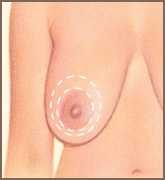
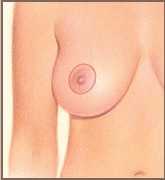
CONCENTRIC MASTOPEXY, also known as the doughnut or Benelli mastopexy, is the least involved and ideal for women with smaller breasts and the least amount of sagging who would like to reduce or reposition their nipples. First, the surgeon makes two concentric circular incisions are around the areola. After removing the doughnut-shaped circle of skin, he replaces the nipple and areola in their desired location, and sutures around the areola to finish.
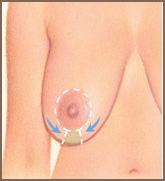
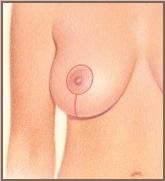
VERTICAL MASTOPEXY for small to medium sized breasts is the most common breast lift we do in our practice because it offers the most powerful correction with the least amount of suturing. The surgeon makes large acorn-shaped incision around the areola that extends below it in a small V. Then, by removing the skin and tissue between the arms of the V and then suturing it closed, he achieves the correction.
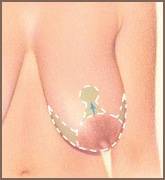
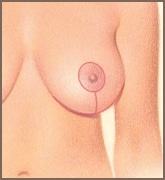
ANCHOR MASTOPEXY is the classic breast lift technique and offers the most power and flexibility for larger or extremely droopy breasts. More involved than the vertical mastopexy, it begins with an anchor-shaped incision around and around the areola. Then, the surgeon removes the section of skin bellow the areola. In closing the incision, both breast tissue and nipple lift to a higher position.
Expectations
Of course, individual results can vary, but a mastopexy can deliver a smooth, fresh, rejuvenated look that will last for years. However, the results won’t keep you firm forever as gravity, weight gain and loss and aging do what they do. Usually, there is no danger in having another breast lift 15 to 20 years after the first one.
Mastopexy scars can be extensive and permanent though we place them under the breast or around the nipple in a way that still allows you to wear low-cut tops or even a bikini top. We can show you what steps to take during your after care that can help minimize scars so that they become practically invisible. The good news is that most mastopexies do not interfere with future pregnancies or breast-feeding.
Since pregnancy and nursing are primary factors in causing breasts to stretch, droop, soften and shrink – and can do so with every birth – you might want to wait until you have had your children before getting breast revision surgery.
Initially, we intentionally position the breasts higher than might look normal because they will naturally relax into their final shape over time. However, some patients like the super-high look and become disappointed when their breasts assume a more natural form. Should this be the case, we can easily go in and do a minor revision to achieve the look you desire.
What a mastopexy alone cannot do:
- eliminate stretch marks (unless they’re part of the skin that’s getting removed)
- increase breast density or volume (only implants can do that)
- significantly decrease volume
- change the location of the breasts themselves on the chest wall
Related Procedures
Instead of a simple mastopexy, many patients wish to incorporate another breast revision procedure.
These include:
- Breast augmentation plus breast lift
- Breast reduction
OLD THINKING VS. NEW TECHNIQUES
Breast lifts – indeed all breast revision procedures – have become significantly more sophisticated than in generations past, resulting in a far more subtle, natural outcomes than ever before.
These breakthroughs include:
- REDUCED SIDE FULLNESS: Today, less fullness on the sides of the breasts looks more pleasing.
- VERTICAL LIFT: This relatively new technique more easily achieves the most desirable angle, slope and drop off, ensures symmetry and eliminates the chest concavity that were known to occur over time with older procedures.
- DEEPER FOUNDATION: Working deeper into the tissue allows the surgeon to deliver results that last longer than earlier techniques.
Pre-Operative Consultation
The pre-operative consultation is where we examine and measure your breasts, review your health, finalize the details of your procedure, determine areola and nipple position, order appropriate tests, prescribe medications, discuss your aftercare and answer any questions you may have.
For patients over 35, we ask that you bring:
- mammogram results no more than a year old (If you haven’t had a recent mammogram, we can recommend a local facility who provides the service.)
For patients over 45, we may also require that you provide the following:
- full medical clearance
- EKG
- chest x-ray
CRITICAL PRE-OP CAUTIONARY NOTE
It is absolutely essential that that you avoid all aspirin, aspirin-related, ibuprofen or blood-thinning medications for 2 full weeks prior to your surgery. In your pre-op consultation, we will give you a complete list of these drugs. For our patients, we also provide a password-protected link allowing you to download the list onto your computer. If in doubt about a specific medication, do not take it, call the office first and ask if it is on the forbidden list.
Operation and Recovery Logistics
SURGERY DURATION: Depending on the procedure, 1-1/2 to 4 hours
ANESTHESIA: Sedated
Gradually, you will be able to resume to your normal activities:
- 1 DAY: SHOWERING
- 4 DAYS: BACK TO WORK
- 1 WEEK: LIGHT WEIGHT LIFTING
- 3 MONTHS: SLEEP WITHOUT THE POST-SURGERY BRA
MINIMIZING SCARS
Scars on the breasts themselves can remain lumpy and red for months, becoming gradually less visible over time and eventually fading to thin white or invisible lines in about 6 months.
Visible scarring can be kept to a minimum by:
- following all post-op instructions to the letter
- wearing the recommended bras day AND night for three months
- avoiding pulling and tension in your upper body (including bouncing)
- sleeping on your back (which keeps pressure off your healing breasts)
- using silicone scar strips (available in any drug store, our staff can instruct you how to use them)
- avoiding all sun exposure on your neck, breasts and decolletage
- wearing a strong sports bra when working out
Patients may choose have a mastopexy in conjunction with other procedures such as liposuction (to eliminate upper back ‘bra bulge’ or an arm lift (brachioplasty).
Post-Operative Care
As you wake up from surgery, you will feel more numb rather than in pain. You in a post-surgical bra that you will need to wear day and night for 3 months.
You will need to keep your activities to a minimum for at least 3 to 5 days. We will remove the sutures from 2 days to a week after surgery.
In person and in your post-op information packet, we shall explain everything you need to know for your aftercare at home that will include:
- incision care
- changing the steri-strips
Risks and Challenges
No surgery is entirely risk-free. However, both our staff and facilities have the highest possible qualifications to produce a happy outcome.
While risks and complications are extremely rare, be aware that those for mastopexy include:
- permanently visible scars
- uneven nipple positioning
- reduced or total sensation loss in your nipples
- partial tissue loss
- infection
- incision separation
Conditions that make breast revision more of a challenge (though not impossible) and may require additional consent/consultation from the appropriate medical specialists include:
- smoking
- diabetes
- previous implants over the muscle
- previous breast cancer surgery


